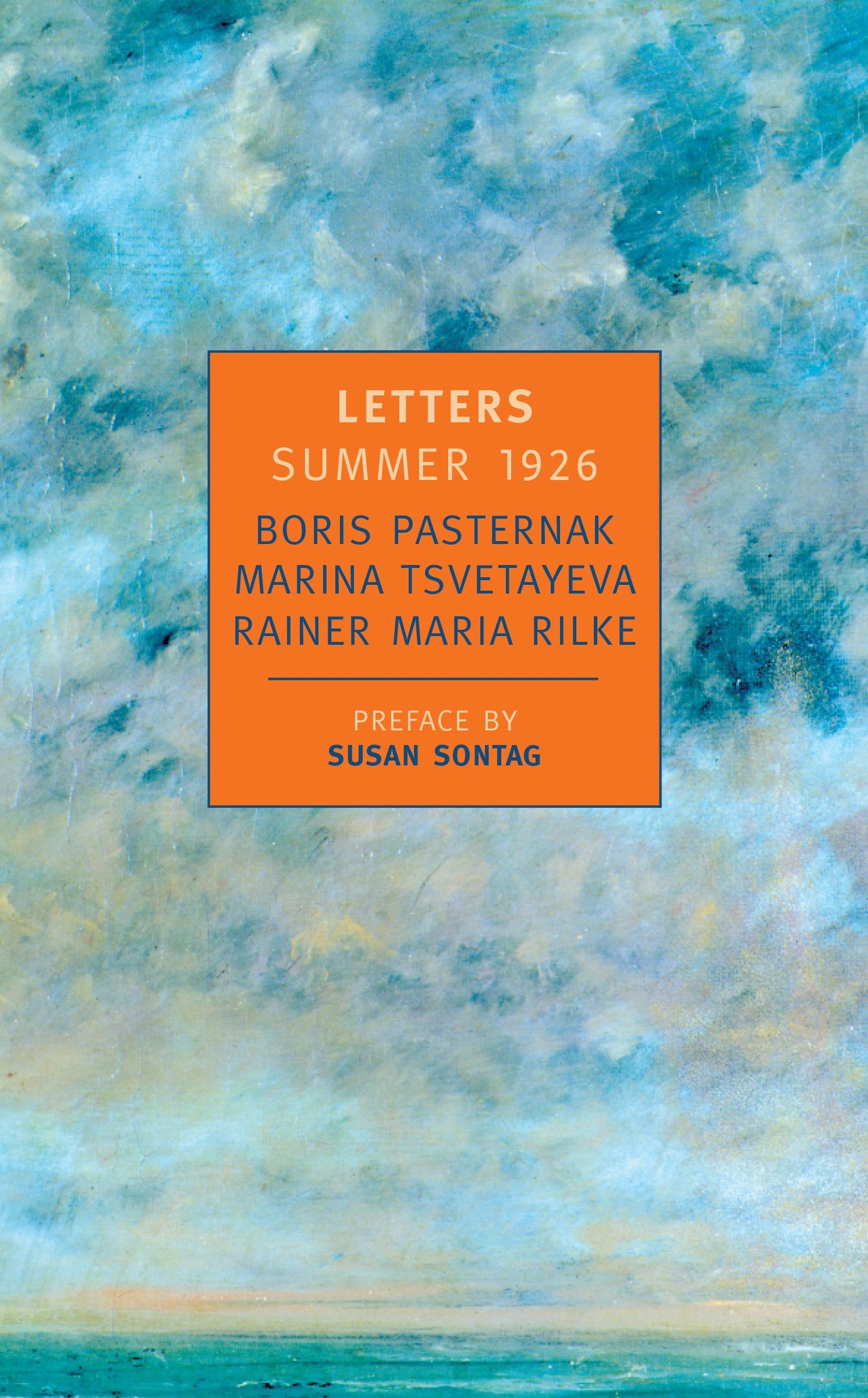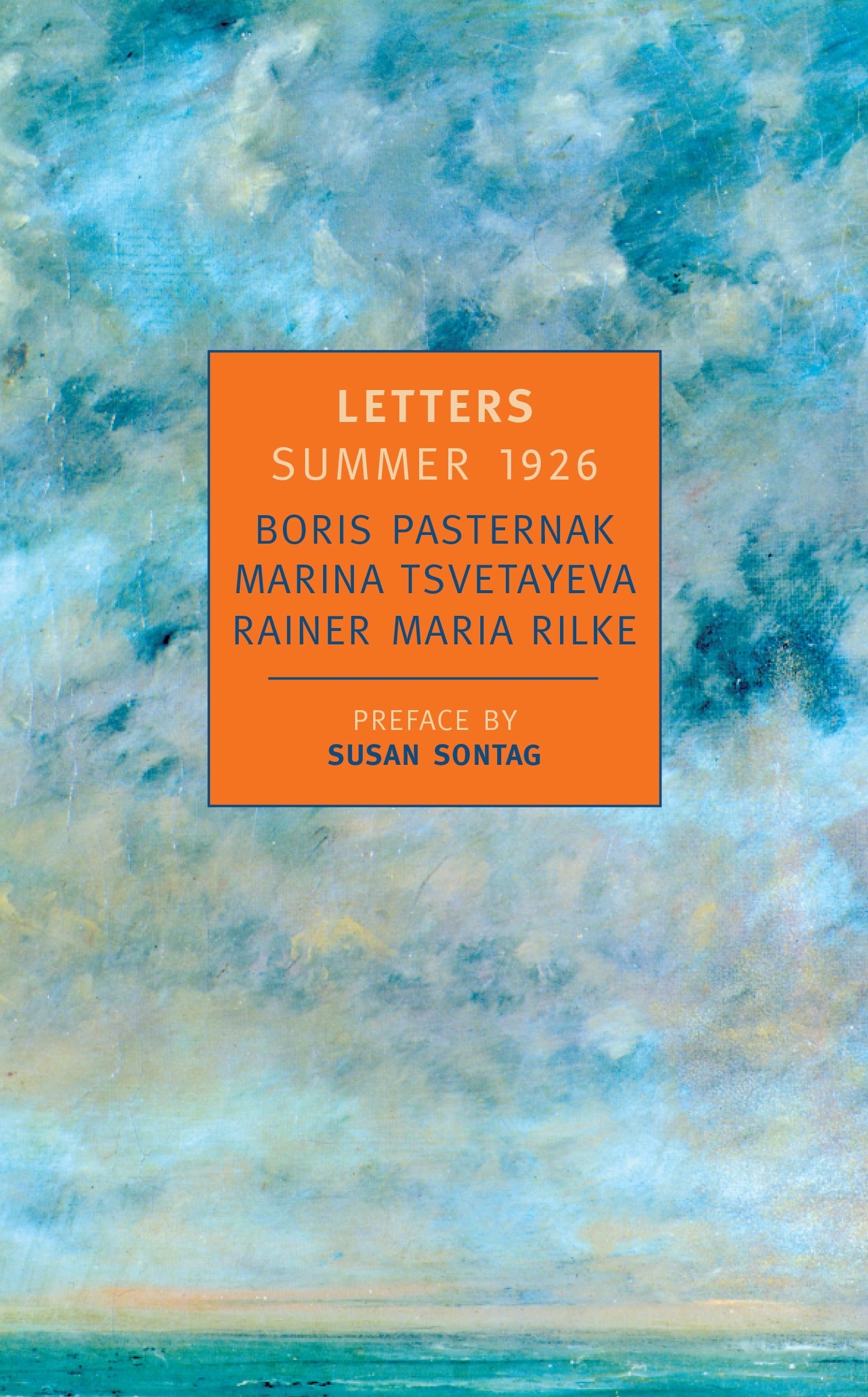Letters
Letters
Summer 1926
by Boris Pasternak, Rainer Maria Rilke, and Marina Tsvetayeva, preface by Susan Sontag, appendix and epilogue by Jamey Gambrell, translated by Margaret Wettlin, Walter Arndt, and Jamey Gambrell
Regular price
$22.95
Regular price
$0.00
Sale price
$22.95
Unit price
per
Couldn't load pickup availability
Additional Book Information
Additional Book Information
Praise
Praise

-
Shopping for someone else but not sure what to give them? Give them the gift of choice with a New York Review Books Gift Card.
Gift Cards -
A membership for yourself or as a gift for a special reader will promise a year of good reading.
Join NYRB Classics Book Club -
Is there a book that you’d like to see back in print, or that you think we should consider for one of our series? Let us know!
Tell us about it





